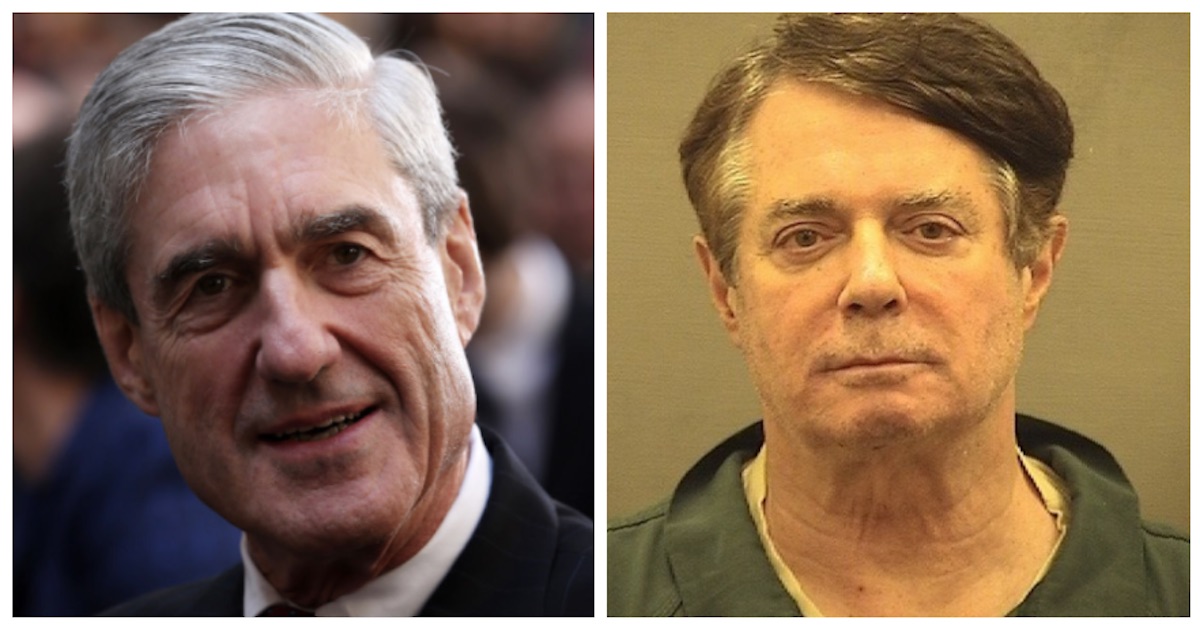
Paul Manafort‘s attorneys filed a redacted response to Robert Mueller‘s office on Wednesday evening which essentially accuses the special counsel of playing procedural tricks against the former Trump 2016 campaign chair in order to catch him in a lie. This filing functions as Manafort’s official rejoinder to evidence filed last by the special counsel purporting to document Manafort’s alleged lies to federal investigators.
Last time Manafort’s attorneys filed such a response they fudged the redactions–the text was easily readable by use of the copy-paste function. This time, Manafort’s legal team made another–less important–mistake: referring to the Special Counsel’s Office (SCO) as the Office of Special Counsel (OSC) throughout their filing.
Aside from this unimportant oops on an acronym, the filing mostly makes the dual-pronged argument that: (1) Manafort never intentionally meant to mislead federal investigators over the course of “more than 12 proffer and interview sessions;” and (2) that whatever the special counsel believes Manafort lied about is mostly inconsequential.
The 10-page filing suggests a few different reasons why.
Manafort begins by noting that he was asked to recall interactions and statements from several years ago, including many made “during a high-pressure U.S. presidential campaign he managed when his time was extraordinarily limited [and] during the difficult time that followed his departure from the 2016 presidential campaign.”
Specifically, Manafort claims that he was asked a series of statements about “a $125,000 payment made on [his] behalf in 2017.” The filing claims that this payment has always been “the subject of confusion” because Mueller’s office began the inquiry by “mistakenly claiming that the payment was much larger than $125,000.”
Manafort’s attorneys also took issue with the way this inquiry was conducted.
“Rather than setting out the facts and documents for Mr. Manafort and asking questions about them, the [special counsel’s] approach was to test Mr. Manafort’s recall by revealing details along the way,” the filing notes. “As a result, Mr. Manafort had difficulty recalling the precise history of the payment; nevertheless, he explained it to the best of his recollection.”
Buried in a footnote amidst this argument, however, Manafort’s legal team also appears to be laying the groundwork for procedural complaints against Mueller’s efforts–if it ever comes down to that.
The footnote halfheartedly half-shrugs:
The government is, of course, free to proceed in this manner if it so chooses. It is unusual, however, in a situation where the defendant has agreed to cooperate with the government for prosecutors not to provide documentation in advance in order to refresh the recollection of the witness about past events.
In other words, Manafort’s legal team looks to be signaling that they believe their client is being treated particularly unfairly by Mueller viz. the lying allegations. We’ve seen this happen in the case of Michael Flynn, when Flynn’s attorneys questioned FBI interview tactics. At root, of course, the entire Wednesday filing makes that argument–but the above footnote uses language suggesting a long-traveled departure from established prosecutorial norms.
Essentially, the footnote provides one documented instance where Manafort’s attorneys might later point at in order to claim their client was thrown into the infamous perjury trap. They don’t explicitly make such an argument here.
Later on in the filing, Manafort’s attorneys appear to obliquely reference Mueller’s allegedly “unusual” take on refreshing defendants’ memories–while also noting that Manafort explicitly attempted to correct any misstatements he may have made [italics in original]:
As argued in the defendant’s prior response, even if Mr. Manafort’s statements relating to the other DOJ investigation are viewed as inconsistent, they were corrected by Mr. Manafort during the same interview. There [sic] statements do not support a conclusion that he intentionally lied; indeed, defense attorneys routinely refresh the recollection of their clients during meetings with government prosecutors. Such sessions are often stressful for witnesses and there is nothing unusual or inappropriate in refreshing a witness’ recollection.
[Alex Wong/Getty Images, Alexandria Detention Center]